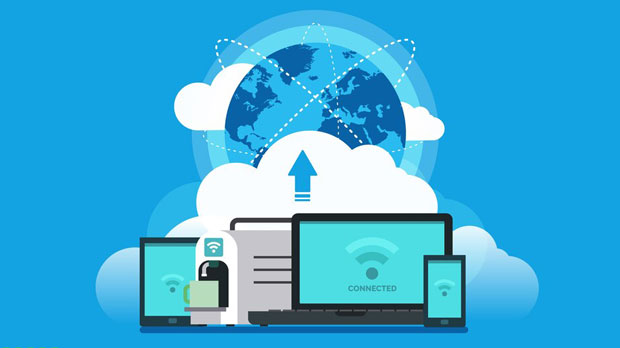In the fast-paced world of social media, data scraping has become an essential tool for businesses, marketers, and researchers. Proxies are at the core of these scraping operations, ensuring anonymity and providing access to geo-restricted content. Among the leading proxy providers are PYPROXY and Luminati, each offering distinct features and advantages. This article presents a detailed comparison of PyProxy and Luminati proxies, focusing on their effectiveness in social media data scraping. We'll explore factors such as speed, reliability, scalability, and overall performance to help clients choose the best solution for their scraping needs. Understanding the Role of Proxies in Social Media Data ScrapingBefore delving into a comparison of PyProxy and Luminati, it’s important to understand the role proxies play in social media data scraping. Proxies act as intermediaries between the scraper and the target website, allowing the user to mask their IP address and bypass restrictions, such as rate limiting or IP blocking. They are crucial for ensuring uninterrupted data extraction from social media platforms like Twitter, Instagram, and Facebook. Without proxies, scrapers would face issues like CAPTCHA challenges, IP bans, and slower data retrieval. Therefore, selecting the right proxy service is key to optimizing the efficiency of the scraping operation.PyProxy Overview: Strengths and WeaknessesPyProxy is a widely used proxy service that specializes in residential and mobile proxies, offering a diverse pool of IPs for social media data scraping. Its focus on providing real, user-owned IPs helps avoid detection and ensures smooth scraping operations.Advantages of PyProxy1. Anonymity and Reliability: PyProxy’s residential proxies are less likely to get blocked by social media platforms due to their widespread geographic distribution.2. Cost-Effectiveness: Compared to other premium services, PyProxy offers a more budget-friendly option, making it a popular choice for smaller businesses and independent developers.3. Scalability: PyProxy supports a large number of simultaneous connections, making it ideal for scraping large volumes of data in real-time.Disadvantages of PyProxy1. Speed and Latency: While PyProxy offers reliable anonymity, some users report slower speeds during peak times, particularly when scraping from highly active social media platforms.2. Limited Customer Support: Unlike larger providers, PyProxy’s customer support can sometimes be slower to respond to issues, which may impact time-sensitive scraping operations.Luminati Overview: Strengths and WeaknessesLuminati, now known as Bright Data, is a highly respected proxy service provider that offers a massive pool of proxies, including residential, data center, and mobile options. It is a leading choice for large enterprises and advanced scraping operations.Advantages of Luminati1. Large Proxy Pool: Luminati offers access to millions of IP addresses worldwide, which makes it highly effective for scraping large datasets across various social media platforms without hitting rate limits or encountering geo-blocking issues.2. Superior Speed: Luminati is known for its fast and stable connection speeds, making it suitable for high-volume data scraping.3. Advanced Features: Luminati provides advanced features like session control, real-time IP rotation, and geo-targeting, which give scrapers more flexibility and control over their data extraction process.Disadvantages of Luminati1. Pricing: Luminati is significantly more expensive than most other proxy services, which might be a barrier for small businesses or individuals looking for cost-effective solutions.2. Complex Setup: For less experienced users, the setup process can be a bit complex due to the range of options available. Comparison of PyProxy and Luminati for Social Media Data ScrapingNow that we have an understanding of both services, let’s compare PyProxy and Luminati based on several key factors that are critical for social media data scraping.1. Proxy Network and AvailabilityLuminati offers a significantly larger pool of IP addresses compared to PyProxy. This vast network allows users to access IPs from virtually every country and region, making it ideal for scraping content from multiple geographic locations. PyProxy, while offering residential proxies, has a smaller network, which may limit options for users who require a diverse range of IPs.2. Speed and PerformanceIn terms of speed and performance, Luminati typically outperforms PyProxy. The higher number of proxies and advanced infrastructure allows Luminati to maintain a more consistent and faster connection, which is crucial for scraping large datasets quickly. PyProxy, although reliable, tends to experience slower speeds during peak usage, especially when dealing with high-traffic social media platforms.3. Cost EffectivenessWhen it comes to pricing, PyProxy is the more affordable option, making it an attractive choice for smaller scraping operations or users with budget constraints. Luminati’s pricing, however, is generally on the higher end, which might make it less viable for smaller-scale projects. For large-scale businesses and enterprises, however, Luminati’s advanced features and scalability might justify the higher cost.4. Customer SupportLuminati offers 24/7 customer support with a more comprehensive knowledge base and dedicated account managers. This level of support is ideal for enterprises that need fast and reliable assistance. PyProxy, on the other hand, provides customer support, but response times can be slower, which may be an issue for businesses that rely on continuous scraping operations.5. Security and AnonymityBoth PyProxy and Luminati provide secure proxy networks that protect users' anonymity. However, Luminati’s larger pool of IPs and its advanced features like IP rotation and session control provide an added layer of protection, making it more suitable for high-risk scraping operations where anonymity is paramount. PyProxy is generally effective at providing anonymity but may face challenges when scraping very large datasets, where IP blocks can become more frequent.Conclusion: Which Proxy Service Should You Choose for Social Media Data Scraping?Choosing between PyProxy and Luminati depends largely on the scale and requirements of your social media data scraping operation. - If you're a small business or individual who needs a budget-friendly option for limited scraping tasks, PyProxy offers good performance and cost-efficiency.- However, if you're running a large-scale operation with high-volume data scraping needs, Luminati’s advanced features, large proxy pool, and superior speed make it the better option.In conclusion, both PyProxy and Luminati are effective solutions for social media data scraping, but understanding the trade-offs between cost, performance, and features will help you make an informed decision tailored to your needs.
Sep 16, 2025



































































